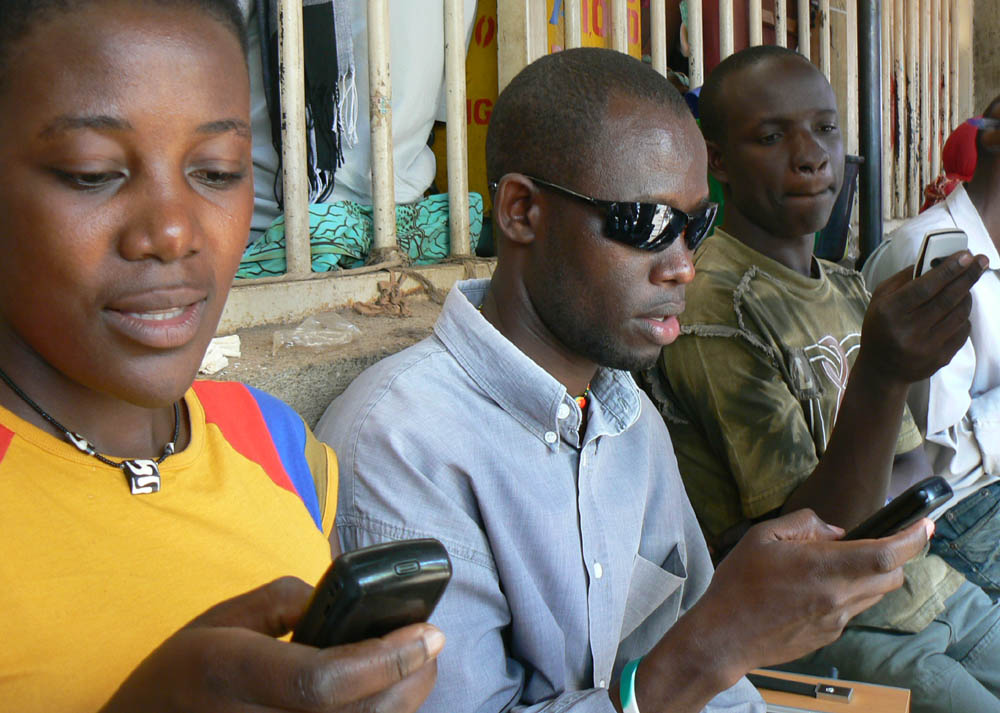I am pleased to announce the creation of an Internet Society Discussion Paper Series, and to release its first paper, “ The Mobile App Divide“. The Internet Society Discussion Paper Series is intended, as the name suggests, to stimulate discussion around a topical issue of importance to meeting the Internet Society goals. In style, it is intended to be longer than a blog post and shorter than a full research study, and likewise, in substance it represents our emerging opinion, but does not represent a final Internet Society position. Instead, we intend it as a means to gather information and insight from our community on the topic. The discussion will inform our view on the issue, and will be reflected in a revised version of the paper.
Our vision that the Internet is for Everyone is driven by the opportunity that the Internet provides for all of its users, including economic benefits. An important economic benefit is the opportunity provided to entrepreneurs to use the Internet to help create and sell their innovations. Access to the open Internet not only allows entrepreneurs to turn their inspiration into innovation, and their innovation into income, but the results often target unfulfilled gaps in developers’ own environment, generating the local content that will increase interest and usage of the Internet.
Mobile apps, which run on smart devices, represent in many ways the ideal online opportunity for entrepreneurs – once an app is created, the developer has only to upload it to an app store which can fulfill the entire rest of the value chain: storage, discovery, distribution, delivery, and updates of the apps, and payments when relevant. App sales are easier than more traditional online sales that require the development of a website, a payment mechanism, and distribution, not to mention the sale of physical goods that additionally require shipment and the corresponding international customs issues.
The first mobile app store was introduced by Apple just seven years ago, and already apps are the main way that many interact with the Internet, using a wide variety of smart devices including phones and tablets. This popularity has generated an app economy worth multi billions of dollars, generating welcome jobs and earnings. However, the opportunity is not available to all.
In developed countries, users have a choice of more than a million apps, across multiple platforms, which have been downloaded well over one hundred billion times. On their side, app developers have access to a market of well over a billion users, and have earned billions in revenue from paid downloads, in-app purchases, and advertising.
In contrast, in Sub-Saharan Africa, in only exactly one country – Nigeria – do users and developers have the same opportunities as in the developed countries to create and use free and paid apps with the largest app platform, Google Play. In many of the countries, developers can only make free apps available – not paid apps. In the other countries, developers cannot even make free apps available. By the same token, in some countries users can only download free apps – in others it is not clear that they have access to any apps through the main app stores.
Overall, this leaves a picture of a significant lost opportunity: on the one hand, the apps that many use every day are not available to all; on the other hand, the marketplace for developers to earn their living is also not available. As we focus on closing the digital divide for access, it is important to also close this app divide to ensure that everyone has the opportunity to benefit from the growing app economy.
In the paper we highlight alternative ways that developers may generate revenues in the majority of countries where they cannot sell apps, and the way these alternatives fall short of full access to the app opportunities available elsewhere. Notably, the app divide highlights a general issue with international payments to and from developing countries, that restricts the ability to use other innovative online inputs important to entrepreneurs, including PayPal, for general e-commerce, and Kickstarter, for crowd-funding new innovations.
The reasons behind this lack of international payments are complicated, opaque, and not consistent from country to country, which are reflected in a difficulty in providing specific recommendations. Instead, this paper is intended to highlight the issue and generate a needed discussion about cause, effect, and solution, in order to ensure the economic opportunity of the Internet is fully available to all of its current and future users.
Please read ” The Mobile App Divide” and then join us in our Connect Open Forum or leave a comment on this blog post to provide your views and opinions on this topic.
Image credit: Ken Banks, kiwanja.net

